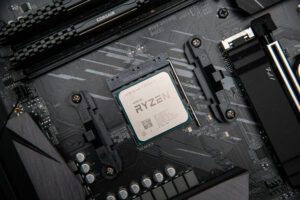Companies either refurbish returned laptops for re-sale, donate them to non-profits, or recycle them. Returned laptops can be a headache for companies.
Each year, thousands of laptops are returned to manufacturers for various reasons, such as defects or customer dissatisfaction. But what happens to these returned laptops after they leave the customer’s hands? Companies have several options to deal with these devices, such as refurbishing them for resale, donating them to non-profits, or recycling them.
Refurbishing laptops for resale is a popular choice for companies, as it not only reduces waste but also allows them to recoup some of their losses. Donating laptops to non-profits is another way to give back to the community and make a positive impact. Finally, recycling laptops helps prevent them from ending up in landfill and reduces the environmental impact of e-waste.


Credit: www.us.jll.com
Understanding The Reason Behind Laptop Returns
Returned laptops can be a headache for companies. One of the most common reasons for returned laptops is a defect in the product. Other reasons include issues with software, broken screens, and performance faults. Returns can impact a company’s bottom line by leading to lost revenue and increased operating costs.
In addition, companies must follow strict procedures for handling returned laptops, including inspecting the product, deciding whether to replace or repair it, and determining the cause of the defect. Overall, companies must be careful when handling returned laptops to maintain their reputation and avoid losing customers.
Sorting The Returned Laptops
Returned laptops can be a headache for companies who need to figure out what to do with them. The first step is sorting them out to determine what condition they are in. Inspection of the laptops is essential, and damages must be noted.
Once damages are differentiated, laptops are then categorized based on whether they are functional or non-functional. Functioning laptops may be refurbished and resold or donated, while non-functioning ones may be recycled or disposed of properly. Companies may also consider selling them to third-party vendors who specialize in buying and refurbishing returned electronics.
Overall, proper handling of returned laptops not only benefits the environment, but also helps companies earn revenue and maintain their reputation with customers.
Repairs And Refurbishment Of Returned Laptops
Returned laptops that are still functional undergo evaluation for possible refurbishment. The refurbishing process includes thorough cleaning, software updates and replacement of damaged components. The types of repair performed include fixing the motherboard, replacing the battery and repairing the screen.
Refurbished laptops are sold at a price lower than a new one. Advantages of refurbishment include affordability, environmental sustainability, warranties and a chance for lower-income students to afford laptops. Some disadvantages involve reduced battery life compared to new laptops and shorter warranties.
Refurbished laptops are perfect for those who are tight on budget, looking for affordable laptops or simply want to reduce their environmental impact.
Reselling Returned Laptops
Returned laptops are a common issue for companies, and reselling them is one option. The resale value of returned laptops is determined by various factors. Companies use various methods to resell laptops, such as refurbishing or repackaging them. Pricing and marketing refurbished laptops are vital, and best practices should be adopted.
Planning for future returns is also necessary to optimize on the resale value.
Donation And Disposal Of Non-Functional Laptops
Companies often dispose of non-functional laptops through donation or disposal. Disposing methods may include selling to third-party buyers or recycling the parts. Benefits of donating non-functional laptops may include tax deductions and supporting a good cause. However, companies must take care to properly erase any sensitive information on the laptops before donating or disposing of them.
Improper handling of information can lead to data breaches and legal issues. Additionally, improper disposal methods can have a negative environmental impact, so companies should try to use methods that minimize harm to the environment.
Frequently Asked Questions For What Do Companies Do With Returned Laptops
What Happens To Returned Laptops?
Companies either refurbish and resell them, or recycle the parts.
How Are Returned Laptops Refurbished?
Returned laptops are cleaned, inspected, and repaired to factory specs.
Can I Buy A Refurbished Laptop From A Company?
Yes, many companies sell refurbished laptops at a discounted price.
How Can Companies Ensure Data Security On Returned Laptops?
Companies use data wiping software or physically destroy the hard drive.
Conclusion
Returned laptops is a growing problem in the world of business. Companies often have to deal with a plethora of returned devices, but few understand what to do with them. Fortunately, there are several solutions at hand. The most environmentally-and-budget-friendly option is to refurbish the laptops and resell them at a lowered price.
Other companies opt to donate them to charities or non-profit organizations, which are in desperate need of these devices. Another option is to recycle them responsibly through an electronic waste management system. Regardless of the route taken, it is important for companies to act responsibly and efficiently when dealing with returned laptops.
Not only does this demonstrate their commitment to the environment, but it also helps to strengthen their relationships with customers. At the end of the day, the most important thing is to find a solution that benefits everyone involved.



